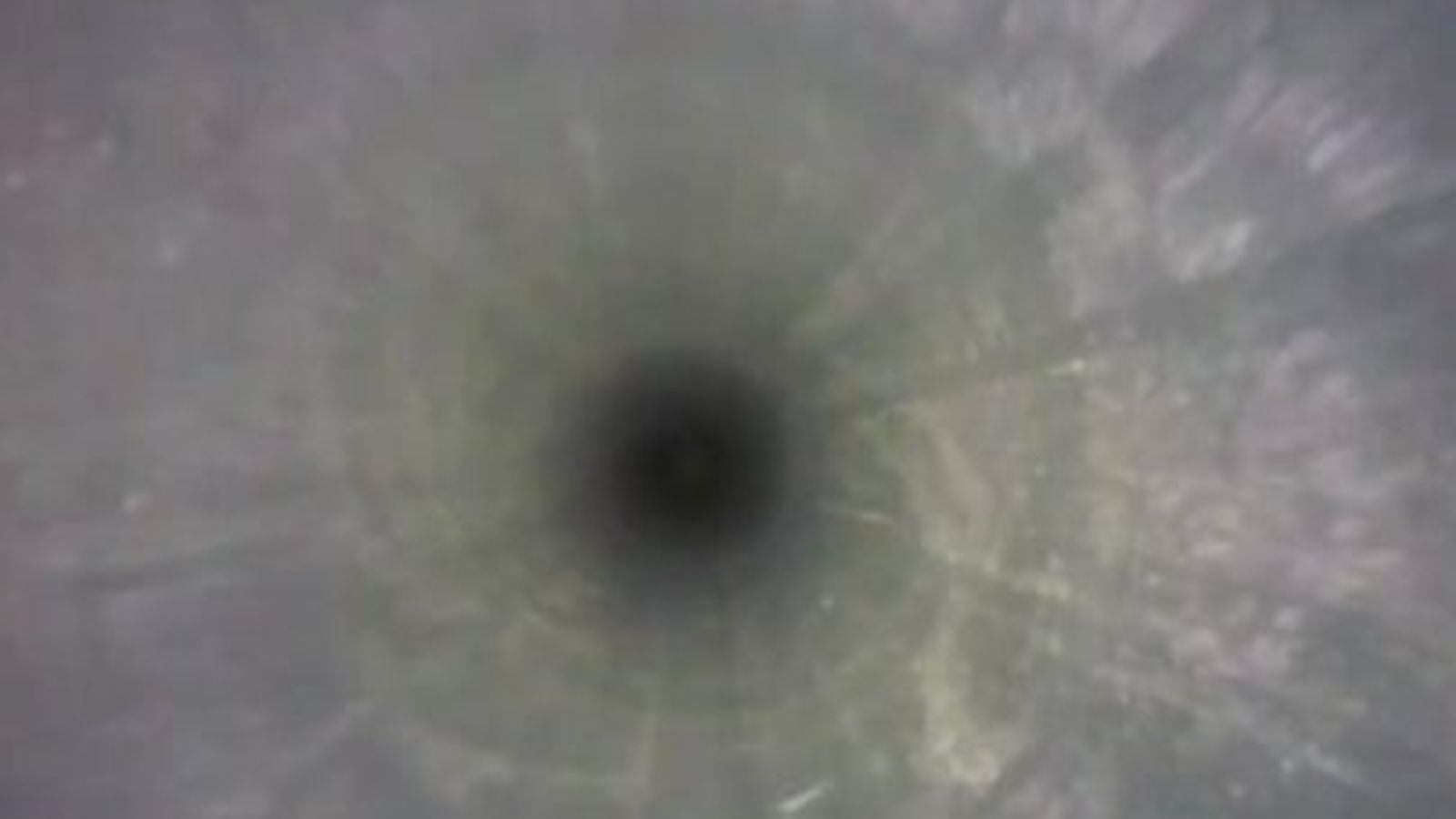A camera has been sent 93 metres underground to reveal what could be some of Earth’s oldest ice.
Video shows it hurtling down a borehole as researchers collected samples they estimate to be over two million years old.
PhD student Austin Carter filmed the clip in Allan Hills, East Antarctica, on 23 December.
He and other researchers travelled with the Center for Old Ice Exploration (COLDEX), which is on a mission to find and extract the continent’s oldest ice.
COLDEX hopes its research will help understand the evolution and future of Earth’s climate, including how sensitive ice sheets are to higher levels of greenhouse gases and how Antarctica’s ice sheets might respond to warmer climates.
Radar and GPS surveys are used to identify potential sites, but the search area is vast as the East Antarctic ice sheet is about the size of America.
Scientists have likened their five-year mission to trying to find a needle in a haystack and initial explorations are focused on an area about half the size of Germany.
Renewable power made up 40% of Britain’s electricity in 2022 – but fossil fuel share also rose
What happened in 2022?
Climate change: Next year set to be warmer than 2022 and one of the hottest years on record, Met Office experts say
“We’re looking for that perfect location where you’re going to have a full sequence of ice that’s on the order of two miles thick,” glaciologist Peter Neff told the Antarctic Sun.
Information about the Earth’s climate, such as how much carbon dioxide (CO2) was present in the air, can be gauged by analysing the air bubbles trapped in the glacial ice.
Scientists currently have an insight into climate and CO2 levels going back 800,000 years thanks to an ice core drilled in East Antarctica 20 years ago.
However, the current project is hoping to go back much further.
“The goal is to extend the ice core record of climate change back as far as we can,” climate researcher and COLDEX director Edward Brook told the Antarctic Sun.
“It would even be remarkably important if we could push it back to three or four million years or even older.”









